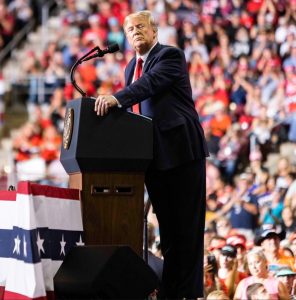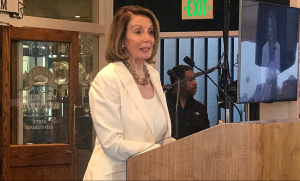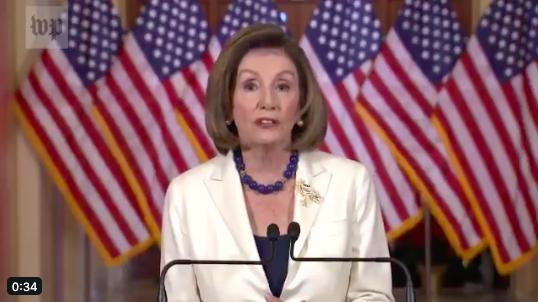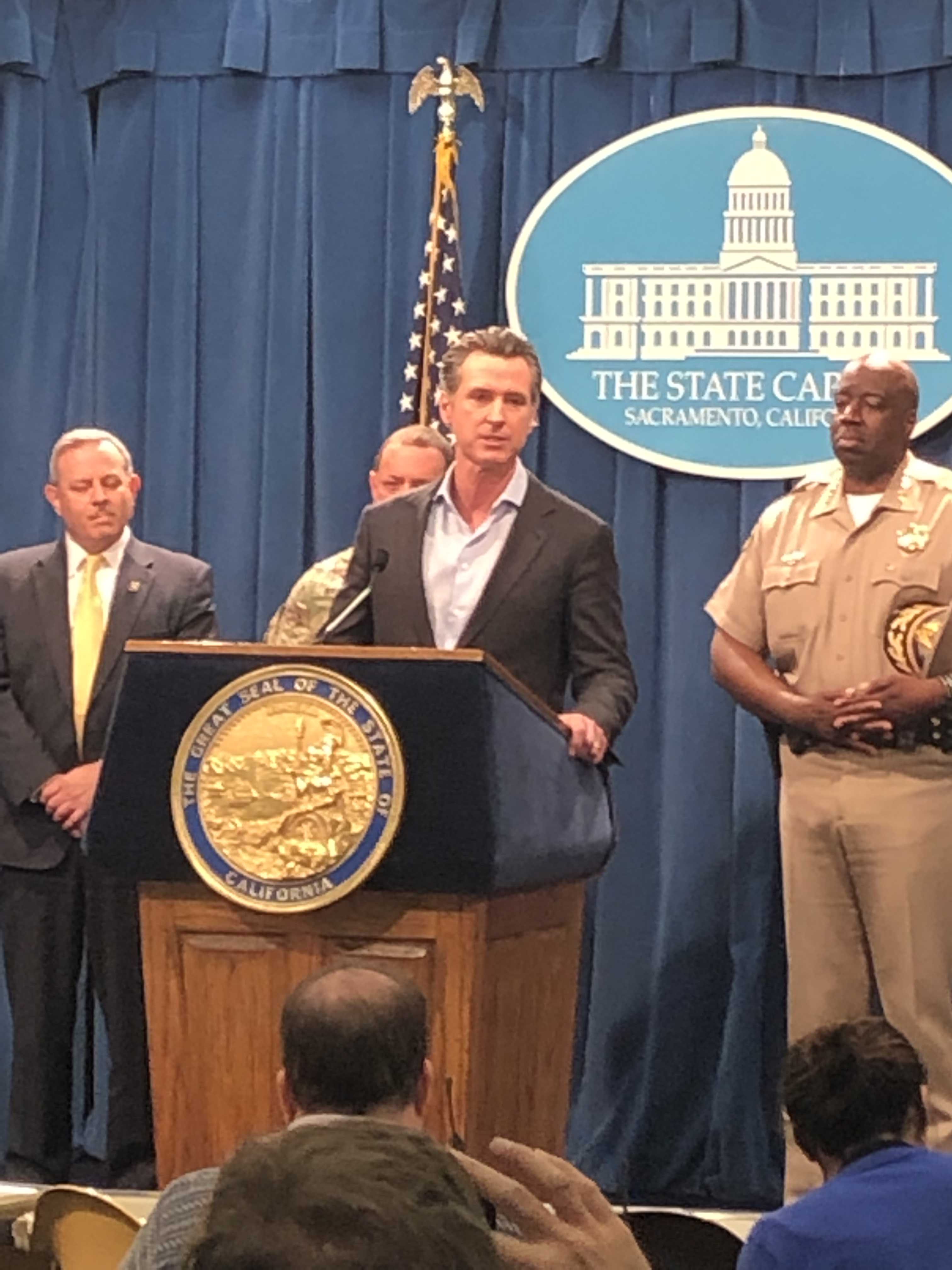
President Donald Trump (Twitter)
How California Holds The Key To President Trump’s Impeachment Inquiry
California Representatives are the biggest influences in every level of the process.
By Evan Symon, September 25, 2019 10:18 pm
With a House vote on impeaching President Trump becoming more likely in recent days with an inquiry being launched by Speaker of the House Nancy Pelosi, the Globe takes a look at just how influential California is with impeachment proceedings in 2019.
California’s power in impeachment proceedings is nothing new. California has played a large part in presidential impeachment processes in recent history.

In 1974 President Nixon was nearing impeachment proceedings over his role in the cover-up of the Watergate scandal. A vote was going forward before the House on impeachment before President Nixon resigned. California had 43 House Representatives in 1974, with many of those uncertain, as Republicans had a larger base in California at the time with 20 Republican seats, and Richard Nixon himself was from the Golden State.
In 1998, President Bill Clinton was up for impeachment over perjury and obstruction of justice charges stemming from the Monica Lewinsky scandal, with Californian votes making it smaller majority voting for impeachment. California had 52 seats in 1998, but they were overwhelmingly Democrat with only 22 Republic-held seats, in addition to a Democratic President in office. For California the vote was strictly along party lines 30-22.
California itself has had a long history of removing politicians from state office, usually from recalls. Since 1995, California has had recalls of two state Assemblymembers, a state Senator, a Governor, and a Superior Court Judge. As former recalled Governor Gray Davis called it, “Everyone in the state constantly keeps up on you. It’s part of the pedigree [in California].”
If impeachment proceedings should happen for President Trump, he, like his predecessors, faces a different field of politicians from the state with the most representatives. California now has 53 of the 435 House seats. Of those 53 only 7 are Republican.
Six committees are also looking into the impeachment inquiry: Financial Services, Intelligence, Foreign Affairs, Judiciary, Ways and Means, and Oversight and Reform. Of those, California Representatives chair two of them and are the minority chair in one. At least 3 of every committees members are from California.
And that’s not including Speaker of the House Nancy Pelosi or Minority Leader Kevin McCarthy, the two most powerful Representatives in the entire House who would also play a big role in impeachment proceedings.

So what does this mean for impeachment?
It means Californian Representatives can effectively ensure passage if there is irrefutable evidence. There is a Democratic House majority, 235 to 198, with one Independent. Even if some votes swing, the California Democratic voting block has largely voted alike on the same bills, with all members speaking out against President Trump or his policies in 2018.
They can also be joined by Representative Tom McClintock, who has often gone against his party line. Most notable was in 2003 when, as a State Senator, he ignored the wishes of the Republican Party and ran as another Republican in the recall race. With over 13% of the vote, many analysts at the time were concerned that he might split the vote for the Republicans with Arnold Schwarzenegger and allow then Lieutenant Governor Cruz Bustamante to win.
More recently, in Congress, he has shown to continue the trend of not always voting with the rest of the party. In the 115th Congress he also didn’t vote for Trump backed bills one fifth of the time. While an 80% agreement rate seems high, it was among the lowest rates for a Republican during Trump’s first two years in office.
And that’s only one representative. The Globe talked with Nicholas Wagner, a Fresno-based volunteer who has worked for the campaign of every major Republican candidate since 1992.
“California is often the key for any big vote, because it is a lot of votes and you can depend on it being split between party lines. And what we’ve been hearing from state and national level is a worry that it can split.
If they see California had some split votes, even in an already majority Democratic congress, it could influence other Reps. Especially if the charges seem to stick. So goes California, so goes the nation – it’s been shown time and time again in Washington.
That can also influence the Senate, which is the real hurdle. California has two solid Senators, but if they see that some Republicans broke ranks, especially Republicans from California, then it could be over.”
“Look at California’s coverage in this. We have a huge hand in every part of this, but especially in the house. With some split votes and some California Dems drawing up the right charges? I hate to say this, but the president could be in for a lot.”
As Wagner and others have noted, the Senate will be where the real contest would be. Senators Dianne Feinstein and Kamala Harris have been on the record supporting impeachment, so nothing would be unexpected for Californians.
But in the House, California has people at every level, from investigating charges, to possibly writing up charges, to delivering them, to voting and influencing votes of others. In short, should the evidence be enough, it will be California who will be making the decisions on one of the largest decisions in decades.
- Bill to Require Law Enforcement Disclosure if AI Was Used To Help Write Reports - August 7, 2025
- Gov. Newsom Files FOIA Request To ‘Expose True Cost’ Of L.A. Federal Troop Deployment for Anti-ICE Riots - August 6, 2025
- California Redistricting: How Newsom’s Plan Will Demolish Hard Fought GOP Gains - August 6, 2025



